Can Essential Oils Give You a Headache
Essential oils have gained popularity for their numerous benefits, from relieving stress to boosting the immune system.
Learn about the common essential oils that may trigger headaches, how to use them safely, and the recommended dosages.
Discover the benefits of essential oils, potential risks like skin irritation and allergic reactions, and get tips on selecting high-quality essential oils for maximum effectiveness.
Key Takeaways:
What Are Essential Oils?
Essential oils are concentrated plant extracts that capture the aroma and flavor of the plant. They are commonly used in aromatherapy and natural medicine due to their potential therapeutic benefits.
These oils are extracted through various methods such as steam distillation, cold pressing, or solvent extraction, depending on the plant source and the properties of the oil. For instance, lavender essential oil is often obtained through steam distillation of the lavender flowers, while citrus oils like lemon or orange are extracted through cold pressing of the fruit peels.
- Each essential oil has a unique composition of volatile compounds that contribute to its distinct scent and potential health benefits.
- Many essential oils have been traditionally used for their antibacterial, antifungal, or calming properties in holistic practices.
- The process of manufacturing essential oils involves meticulous care in preserving the delicate aromatic compounds to ensure their potency and effectiveness.
How Do Essential Oils Work?
Essential oils work by interacting with the body’s olfactory system when inhaled, which can have therapeutic benefits. They can also be absorbed through the skin, affecting the body’s respiratory system and overall well-being.
When inhaled, essential oil molecules stimulate the olfactory receptors in the nose, sending signals to the brain which can influence emotions, memory, and even hormonal balance. Some essential oils have powerful antibacterial and antiviral properties that can help support the respiratory system by clearing congestion and promoting easier breathing.
Through skin absorption, essential oils enter the bloodstream and reach different parts of the body, providing localized benefits and supporting skin health. Studies have shown that certain essential oils possess anti-inflammatory and antioxidant properties, making them beneficial for skin conditions like acne and eczema.
Can Essential Oils Cause Headaches?
While essential oils are generally safe, they can cause headaches in some individuals as a side effect. It is essential to be aware of potential adverse reactions when using essential oils.
Headaches triggered by essential oils can vary in intensity and duration, depending on the individual’s sensitivity. Certain oils, such as peppermint or eucalyptus, are more likely to induce headaches due to their strong aroma. Skin irritation or allergic reactions may lead to headaches when inhaling or applying essential oils topically. To prevent adverse effects, always perform a patch test before using a new oil and dilute them properly. If headaches persist or worsen, discontinue use and consult a healthcare professional for proper assessment and guidance.
What Are the Common Essential Oils That Can Cause Headaches?
Certain essential oils such as lavender, peppermint, and eucalyptus have been reported to trigger headaches in some individuals. It is crucial to understand your body’s response to different oils to avoid such side effects.
Other common essential oils known to potentially cause headaches include rosemary, clary sage, and chamomile. The reasons behind these oils triggering headaches vary, but some factors may include individual sensitivity, improper dilution, or prolonged exposure.
Recognizing the signs of a headache triggered by essential oils can help prevent further discomfort and unwanted reactions. It’s important to keep track of your body’s reactions, adjust usage, or consider alternatives if needed to ensure a positive and enjoyable experience with aromatherapy.
How to Use Essential Oils Safely?
To use essential oils safely, follow specific guidelines such as diluting oils, avoiding direct application, and ensuring proper ventilation during inhalation. Safety should always be a priority when using essential oils.
Regarding inhalation, aromatherapy diffusers are a popular choice to disperse the oils into the air, creating a soothing atmosphere. It’s crucial to use the diffuser according to the manufacturer’s instructions and not leave it unattended.
For skin application, always remember to perform a patch test on a small area of skin to check for any allergic reactions before applying the oil to larger areas. Mixing essential oils with a carrier oil like coconut or jojoba oil can help prevent skin irritation.
- Keep essential oils away from children and pets, storing them in a cool, dark place to maintain their efficacy.
- If accidental ingestion occurs, contact Poison Control immediately for guidance on next steps.
What Are The Recommended Dosages?
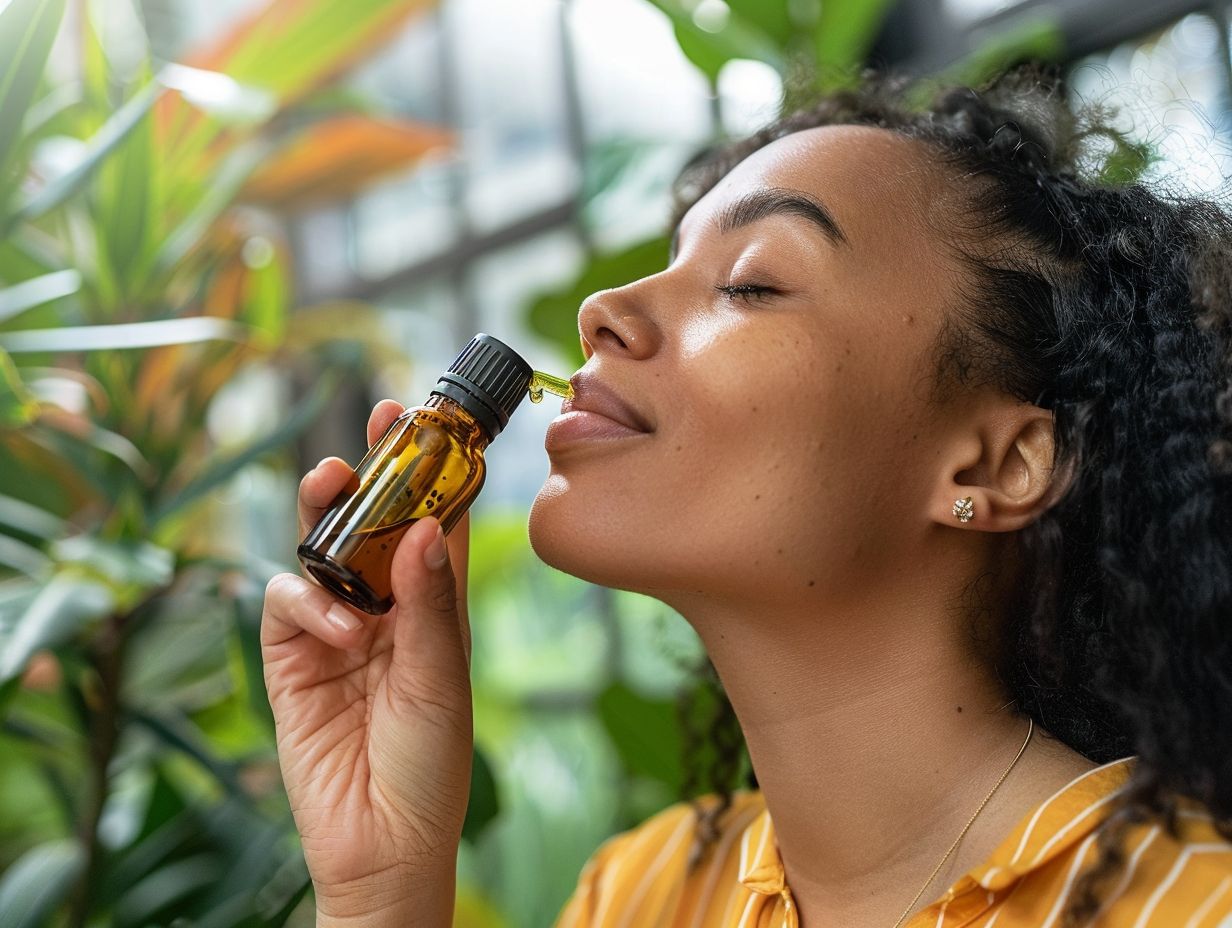
Determining the recommended dosages for essential oils depends on factors like age, health conditions, and the specific oil used. It is advisable to consult a healthcare professional or Poison Control in case of uncertainty.
Individuals with certain health conditions, such as high blood pressure, epilepsy, or pregnancy, need to be extra cautious when using essential oils.
These conditions can impact how the body metabolizes the oils and may require adjustments in dosage. Seeking guidance from a healthcare provider ensures that the oils are used safely and effectively.
What Are The Best Ways To Use Essential Oils?
Using essential oils through diffusers, topical application, or inhalation are among the best ways to experience their benefits. Each method offers unique advantages in maximizing the effects of essential oils.
Diffusers are popular for dispersing the aromatic molecules into the air, providing a gentle and continuous scent throughout a room. They are ideal for promoting relaxation and creating a soothing atmosphere.
- Body oils, when applied topically, allow for direct absorption through the skin, offering targeted benefits such as moisturizing, soothing muscle tension, and improving skin health.
- Aroma sticks are convenient for on-the-go use, allowing individuals to inhale the essential oils for quick relief from stress or to enhance focus and concentration.
How To Dilute Essential Oils?
Diluting essential oils with carrier oils like coconut or jojoba oil is crucial to prevent skin irritation and ensure safe application. Diluted oils are commonly used in skincare and beauty care routines for their nourishing properties.
Regarding diluting essential oils, the process involves combining a concentrated essential oil with a neutral carrier oil. This not only helps in reducing the potency of the essential oil but also aids in better absorption by the skin.
The recommended dilution ratios for skincare applications vary depending on the specific oil and the desired effect. A general guideline is to use around 2-3% dilution for facial care, which translates to about 6-9 drops of essential oil per ounce of carrier oil.
For body care, a slightly higher dilution of 5% can be used, equating to approximately 15 drops of essential oil per ounce of carrier oil. It’s essential to always perform a patch test before full application to ensure compatibility with your skin.
What Are The Benefits of Using Essential Oils?
Using essential oils can offer a range of benefits, including stress relief, improved sleep quality, reduced inflammation, and enhanced immune system function. These natural remedies have been linked to various health benefits.
Research indicates that the use of essential oils such as lavender, eucalyptus, and tea tree can be effective in alleviating stress and anxiety by promoting relaxation and calmness.
Certain oils like chamomile and bergamot have sedative properties that aid in improving sleep quality and combating insomnia.
Essential oils like peppermint and frankincense possess anti-inflammatory properties that may provide relief from conditions such as arthritis and muscle pain.
The antimicrobial and antioxidant properties of oils like lemon and oregano can help support the body’s immune responses, protecting it from pathogens.
Relieves Stress and Anxiety
Essential oils like lavender and chamomile are known for their calming properties that can help relieve stress and anxiety. Aromatherapy with these oils is a popular method for relaxation and mental well-being.
The soothing scents of these essential oils have been found to have a direct impact on the limbic system, the area of the brain that controls emotions. Inhaling these fragrances can trigger the release of neurotransmitters like serotonin and dopamine, which are associated with feelings of happiness and relaxation.
Many people find that incorporating essential oils into their daily routine can help manage symptoms of anxiety and improve overall emotional health. For example, a study published in the Journal of Complementary Medicine showed that inhaling lavender oil reduced levels of cortisol, the stress hormone, in participants.
Improves Sleep Quality
Certain essential oils such as lavender and bergamot have sleep-enhancing properties that can improve sleep quality. Incorporating these oils into bedtime routines can promote relaxation and deeper rest.
One of the key benefits of using essential oils for sleep is their ability to calm the mind and body, creating a soothing environment conducive to a good night’s rest.
Lavender oil, in particular, is renowned for its calming aroma that helps reduce stress and anxiety levels, preparing the body for sleep. Bergamot oil, on the other hand, with its citrusy scent, can uplift the mood and relieve tension, further aiding in relaxation.
To harness the full benefits of these oils, consider diffusing them in your bedroom before bedtime or creating a DIY linen spray by mixing a few drops with water in a spray bottle. You can also add a few drops to a warm bath or use them in a relaxing massage oil before sleep.
Reduces Inflammation
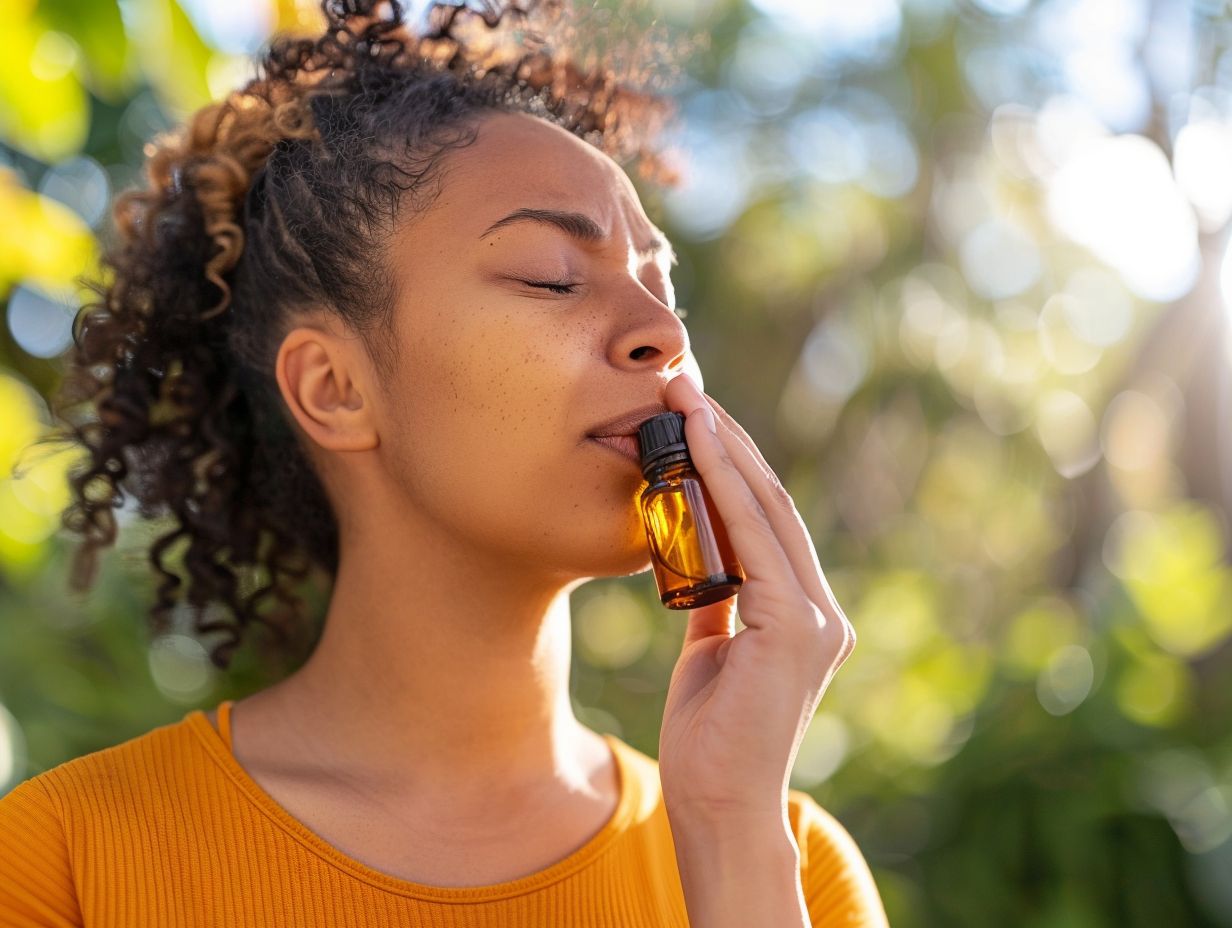
Essential oils such as tea tree and eucalyptus possess anti-inflammatory properties that can help reduce inflammation in the body. These oils are commonly used in natural medicine for their soothing effects.
Tea tree oil, extracted from the leaves of Melaleuca alternifolia, is renowned for its antibacterial and anti-inflammatory qualities. When applied topically, tea tree oil can alleviate redness and swelling caused by skin conditions like acne or dermatitis.
Eucalyptus oil, derived from Eucalyptus leaves, contains eucalyptol, a compound known for its anti-inflammatory and analgesic properties. Inhaling eucalyptus oil through steam inhalation or using it in a diffuser can help relieve congestion and sinus inflammation.
Boosts Immune System
Certain essential oils like eucalyptus and lemon have immune-boosting properties that can strengthen the body’s natural defenses. Regular use of these oils may support immune system function and overall health.
Other potent essential oils known for their antiviral and antimicrobial properties include tea tree oil, peppermint oil, and oregano oil. These oils can help fend off harmful pathogens and bacteria, reducing the risk of infections.
It’s easy to incorporate these immune-boosting oils into your daily routine. You can diffuse them in your home to purify the air or add a few drops to a warm bath for a soothing experience that promotes wellness.
For a more localized effect, dilute essential oils in a carrier oil like coconut or almond oil and apply them topically to pulse points or the soles of your feet. This direct application can enhance their benefits and absorption.
What Are The Risks of Using Essential Oils?
Despite their benefits, essential oils carry risks such as skin irritation, allergic reactions, and potential interactions with medications. Understanding these risks is crucial for safe and effective use.
Regarding skin irritation, essential oils are highly concentrated substances that can be too potent for direct application on the skin in their undiluted form. This can lead to redness, burning sensations, or even adverse reactions, especially on sensitive skin types. It’s essential to always dilute essential oils with a carrier oil before applying them topically.
Allergic responses are another concern with essential oil usage. Some individuals may be hypersensitive to certain essential oils, triggering skin rashes, itching, or even respiratory issues. Conduct a patch test before using any new oil and discontinue use immediately if any adverse reactions occur. Learn more about essential oils headache dizziness.
The potential interactions of essential oils with medications cannot be overlooked. Certain essential oils can interfere with prescription drugs, affecting their efficacy or causing side effects. Always consult a healthcare professional before using essential oils if you are on medication to avoid any unwanted interactions.
To mitigate these risks, it’s essential to educate yourself on the properties of each essential oil, their recommended dilution ratios, and any contraindications. Start with small quantities and increase gradually, and always store essential oils properly in a cool, dark place to maintain their potency.
Skin Irritation
Skin irritation is a common risk when using essential oils, especially in their undiluted form. Diluting oils with carrier oils before applying them to the skin can help prevent irritation and promote safe usage.
Without proper dilution, essential oils can be too potent for direct contact with the skin, leading to redness, burning, or allergic reactions. The highly concentrated nature of essential oils makes them powerful but also potentially irritating if not handled correctly. To avoid adverse effects, it is crucial to follow recommended dilution ratios provided by reputable sources or consult with a qualified aromatherapist. Performing a patch test before widespread application can help identify any potential sensitivity or allergic reactions to specific oils.
Allergic Reactions
Allergic reactions to essential oils can vary depending on individual responses to specific compounds. It is essential to perform patch tests and observe any adverse reactions before widespread use.
Such reactions can range from mild skin irritation to more severe symptoms like redness, itching, or even respiratory issues in extreme cases. Each person’s sensitivity levels to essential oils are unique, making it crucial to remain vigilant when introducing a new oil into your routine.
- When conducting a patch test, apply a diluted amount of the oil to a small area of your skin and monitor for any signs of discomfort for at least 24 hours.
- If you experience symptoms such as swelling, hives, or difficulty breathing, it is imperative to seek medical attention immediately.
Interactions with Medications
Essential oils may interact with certain medications, affecting their efficacy or causing adverse effects. It is crucial to consult healthcare professionals and keep emergency contact information available in case of unexpected reactions.
When using essential oils alongside medications, careful monitoring is key. Some essential oils can influence the way drugs are metabolized in the body, potentially altering their intended effects. Therefore, individuals should inform their healthcare provider about their use of essential oils and any ongoing treatment plans.
- It’s advisable to maintain a detailed record of the essential oils being used and the prescribed medications, making it easier for healthcare providers to identify potential interactions.
- In situations of uncertain reactions, individuals should immediately seek medical attention and have emergency medical contact information readily accessible.
By staying informed and proactive, individuals can safely enjoy the benefits of essential oils while minimizing the risks associated with medication interactions.
How to Choose High-Quality Essential Oils?
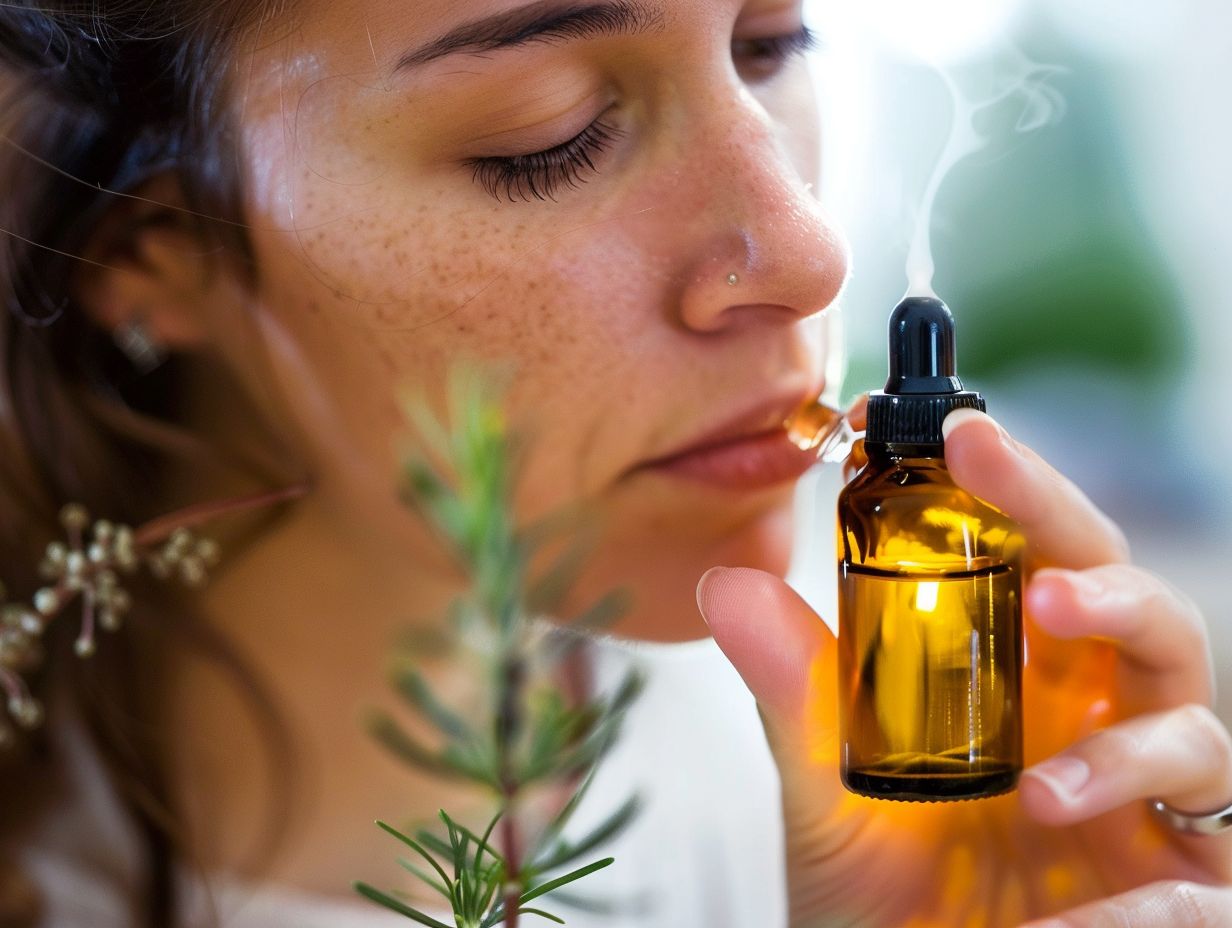
Reputable manufacturers prioritize the quality of their oils by ensuring that they are extracted through proper methods like steam distillation or cold pressing, preserving the purity of the plant’s natural compounds. This meticulous sourcing and production process enhances the fragrance profile, capturing the essence of the botanical ingredients.
When purchasing essential oils, it is crucial to look for certifications such as organic, non-GMO, or pure therapeutic grade labels, as these indicate adherence to strict standards of quality. Reputable sources often provide detailed information about the sourcing origins, cultivation practices, and extraction techniques, allowing consumers to make informed decisions about the products they choose.
Frequently Asked Questions
Can essential oils give you a headache?
Yes, some essential oils can trigger a headache in certain individuals. This can be due to their strong scent or the specific compounds found in the oil.
Which essential oils are known to cause headaches?
Peppermint, eucalyptus, rosemary, and lavender essential oils have been known to trigger headaches in some people. This is because they contain high levels of menthol, camphor, 1,8-cineole, and linalool, respectively.
Why do some people experience headaches when using essential oils?
Our sense of smell is closely connected to the part of our brain that processes pain signals. Therefore, inhaling strong scents from essential oils can trigger headaches in some individuals.
How can I prevent getting a headache from essential oils?
If you are prone to headaches triggered by essential oils, it is best to avoid using them or opt for oils with lower concentrations of the headache-causing compounds. You can also try diluting the oils with a carrier oil before use.
What should I do if I get a headache from essential oils?
If you experience a headache after using essential oils, try taking a break from using them and drink plenty of water. You can also apply a cold compress or use over-the-counter pain relievers to manage the headache.
Are there any essential oils that can help relieve headaches?
Yes, there are some essential oils that are known to have calming and pain-relieving properties that can help ease headaches. These include peppermint, lavender, and chamomile essential oils. However, it is important to do a patch test and use these oils in moderation to avoid triggering a headache.

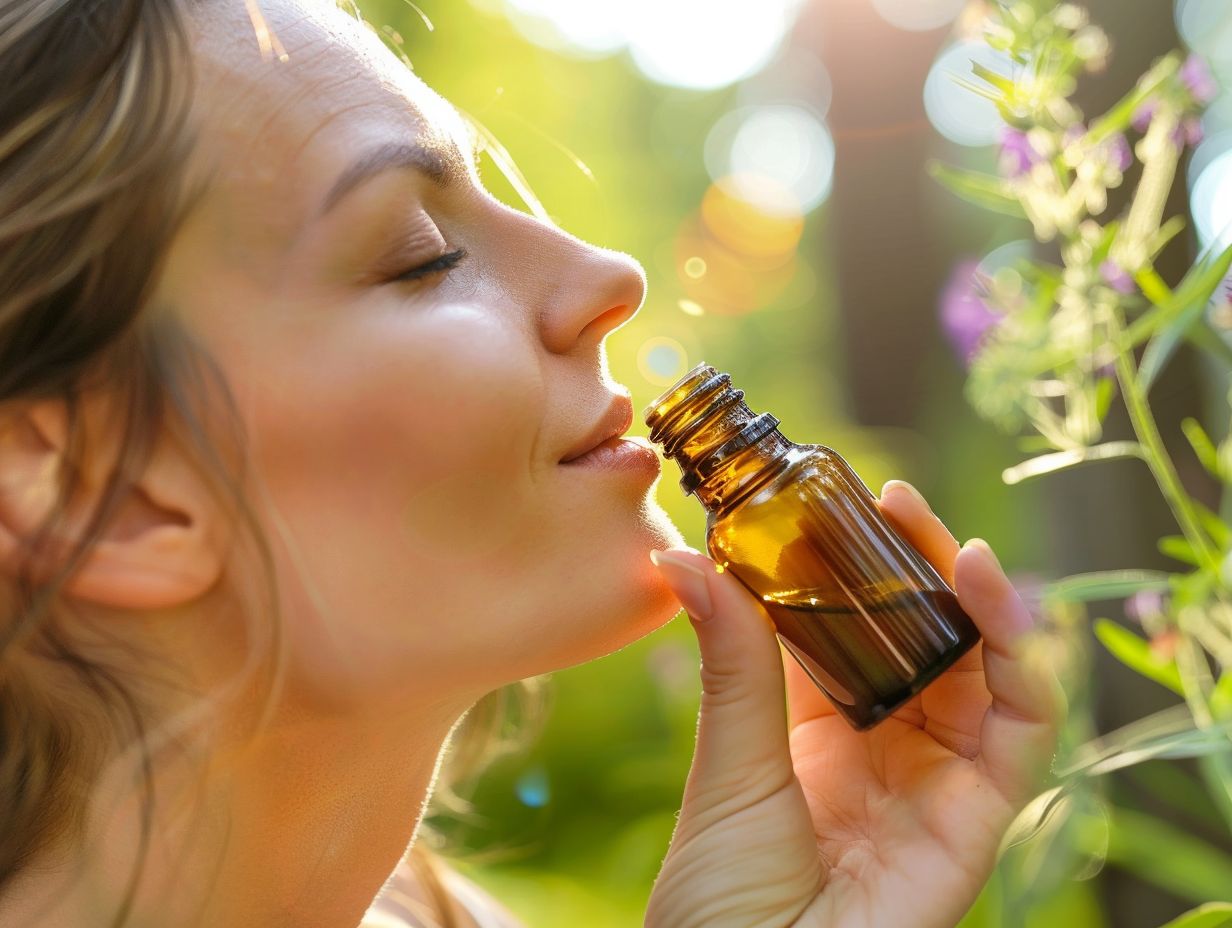

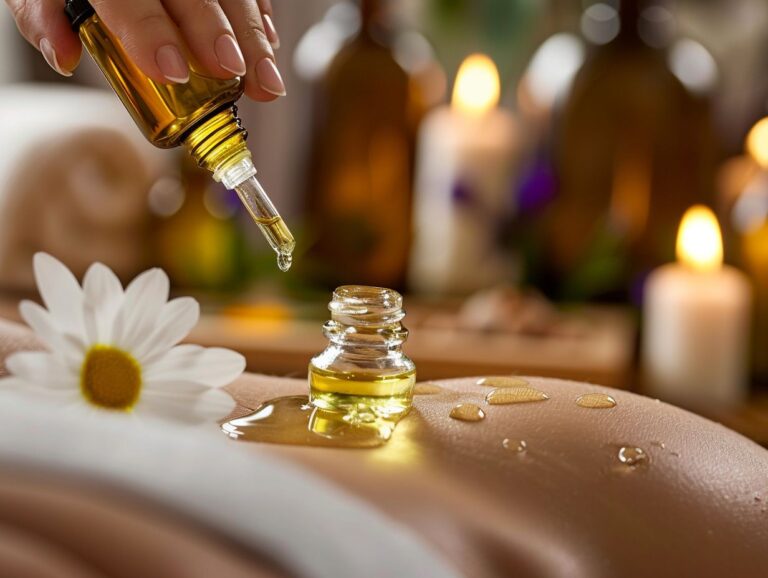
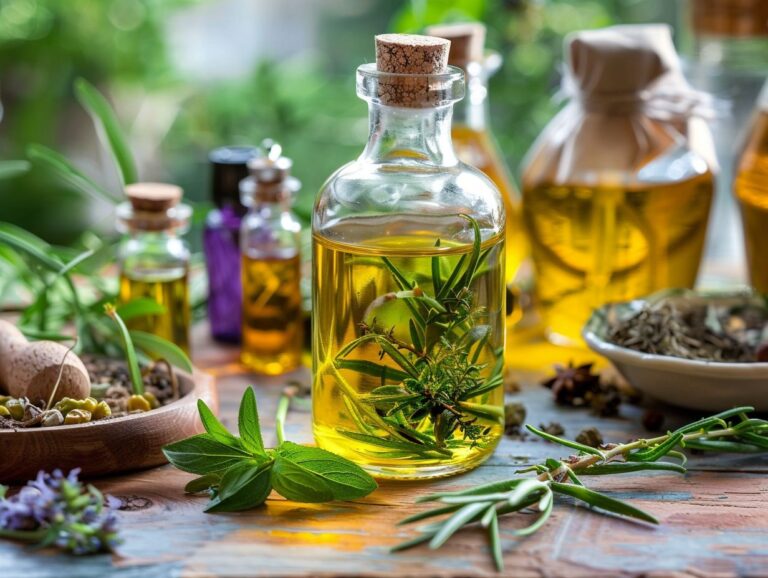
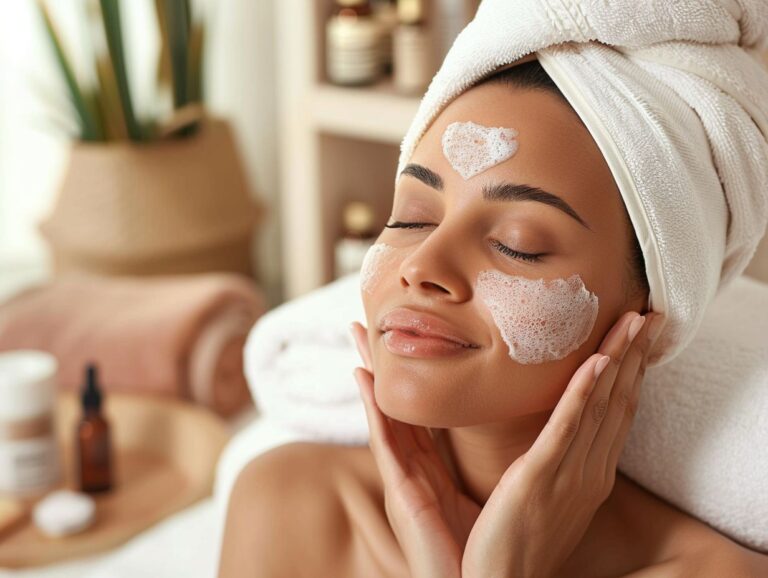
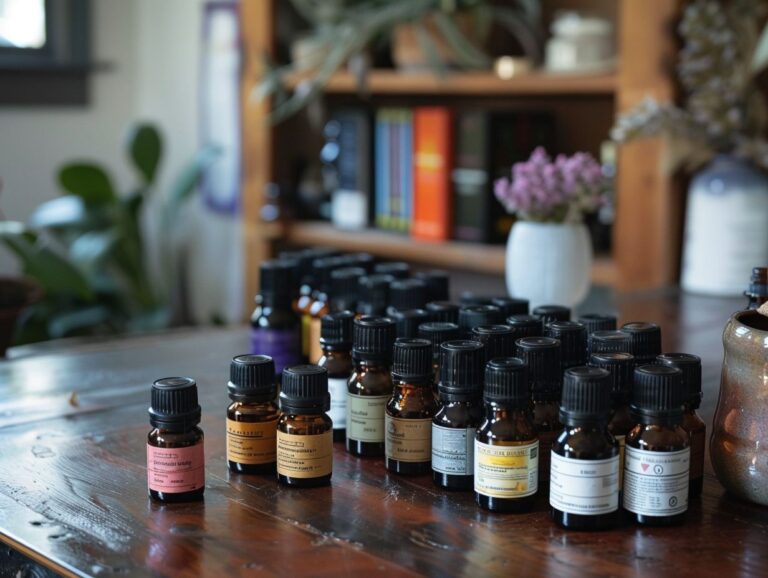
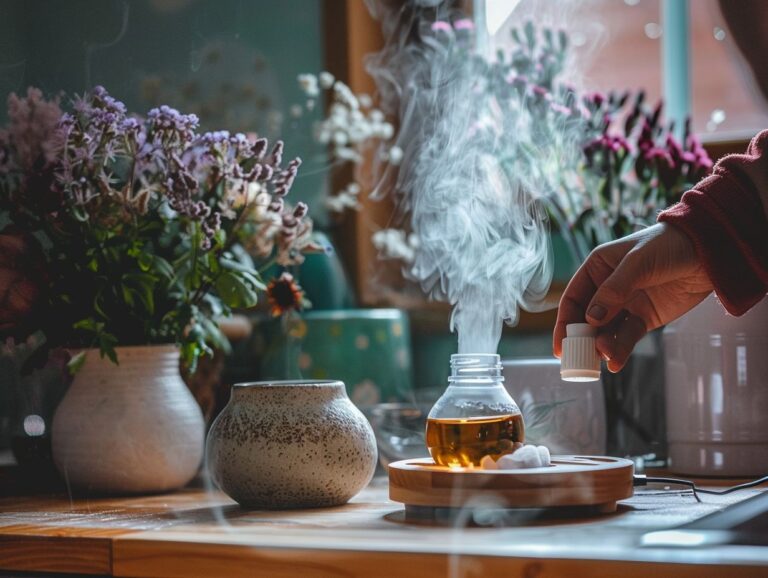
2 Comments